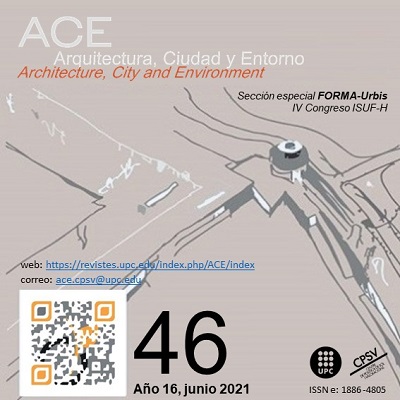Reversing the Gaze: The Role of Metropolitan Voids as Structuring Elements of Stockholm’s Territory
DOI:
https://doi.org/10.5821/ace.16.46.9894Keywords:
Metropolitan voids, ecological systems, territory, landscapeAbstract
Over the last decades, studies on the urban landscape, ecology, and metabolism have emphasised the primordial role that infrastructures and unbuilt spaces play in processes of extended urbanisation, as well as the need to consider these extended systems as an integral part of contemporary urban space. In this paper, we highlight the importance that metropolitan voids had in the formation of the geographical and territorial system of Stockholm’s region, as well as the role that landscape played in the urban models of Sweden’s welfare state. In the Swedish context, the suburban developments of functionalist planning, and particularly the residential projects of the miljonprogram, constitute extremely valuable case studies to analyse and re-evaluate the role of unbuilt spaces as structuring elements of cities and regions. The article analyses how this urban process shaped Stockholm's region and concludes by suggesting that unbuilt spaces may take on a key role in its future development.
Downloads
Published
Issue
Section
License
| INTELECTUAL PROTECTION CRITERIA |
At this moment, it is count with the "Oficina Española de Patentes y Marcas", while global protection it is being processed by the World Intelectual Property Organization (OMPI/WIPO). Nevertheless the International Standard Serial Number Office (ISSN) has given the following numbers ISSN: 1886-4805 (electronic version) and 1887-7052 (paper version). All articles will be peer reviewed, using double blind reviewing. |
| COPYRIGHT |
The article contents and their comments are authors exclusive liability, and do not reflect necessarily the journal editor commitee's opinion. All ACE published works are subject to the following licence CC BY-NC-ND 3.0 ES http://creativecommons.org/licenses/by-nc-nd/3.0/es/ It implies that authors do not hold nor retain the copyright without restrictions but only those included in the licence. |


































